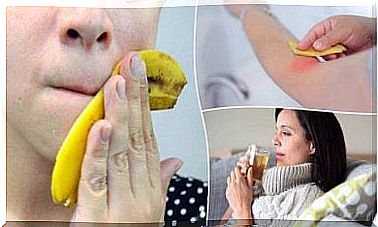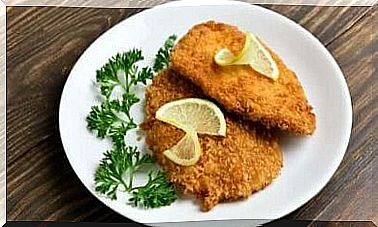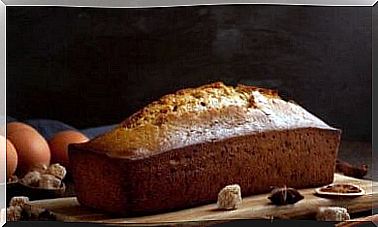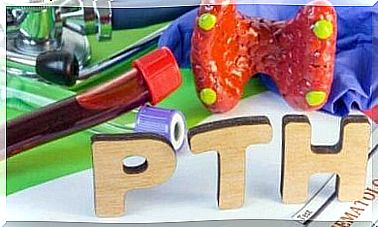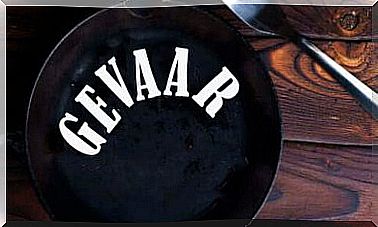The 8 Most Common Dishwashing Mistakes
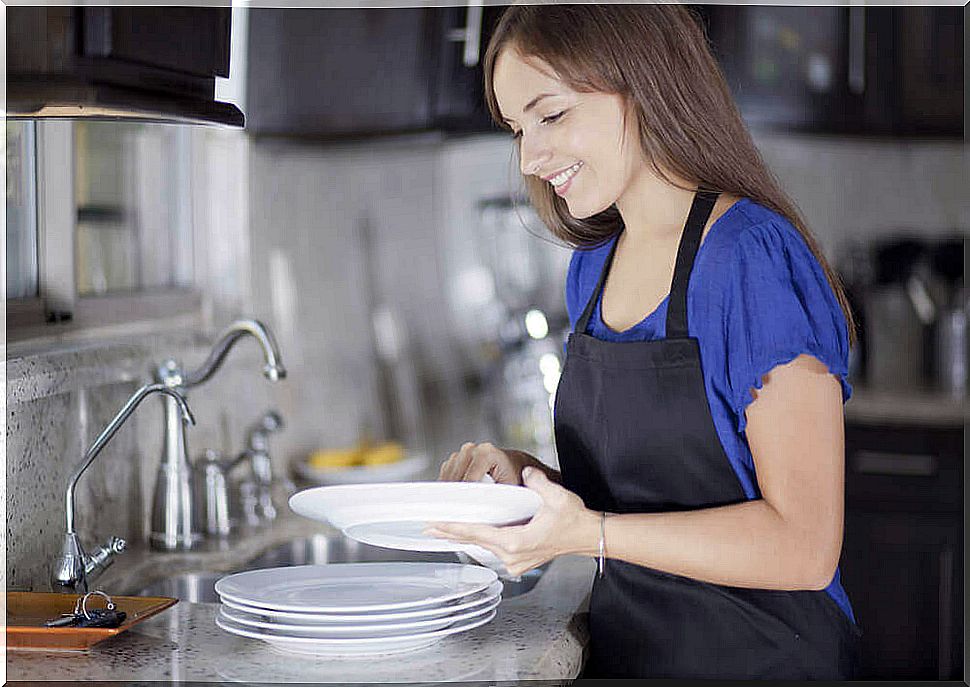
We often think that our kitchen is free of bacteria after it has been cleaned, but unfortunately this is not always the case. Not only the scouring pad in our sink is full of bacteria. More mistakes are made when washing dishes that leave food residues behind and spread bacteria.
Charles Gerba is a microbiologist from the University of Arizona. After multiple research, he has come to the conclusion that 50% to 80% of all diseases are caused by contaminated food indoors.
As many as 6.5 million cases of stomach flu are caused by bacteria every year.
The most common mistakes when washing dishes
1. Not using the correct detergent
One of the most common dishwashing mistakes is using the wrong detergent or using too much detergent. When you use too much detergent, detergent can remain behind and eventually end up in our food.
When washing dishes, you only need to use hot water and detergent. Read the label on the bottle and follow the instructions. The label indicates the amount of detergent you should use.
2. We waste a lot of water
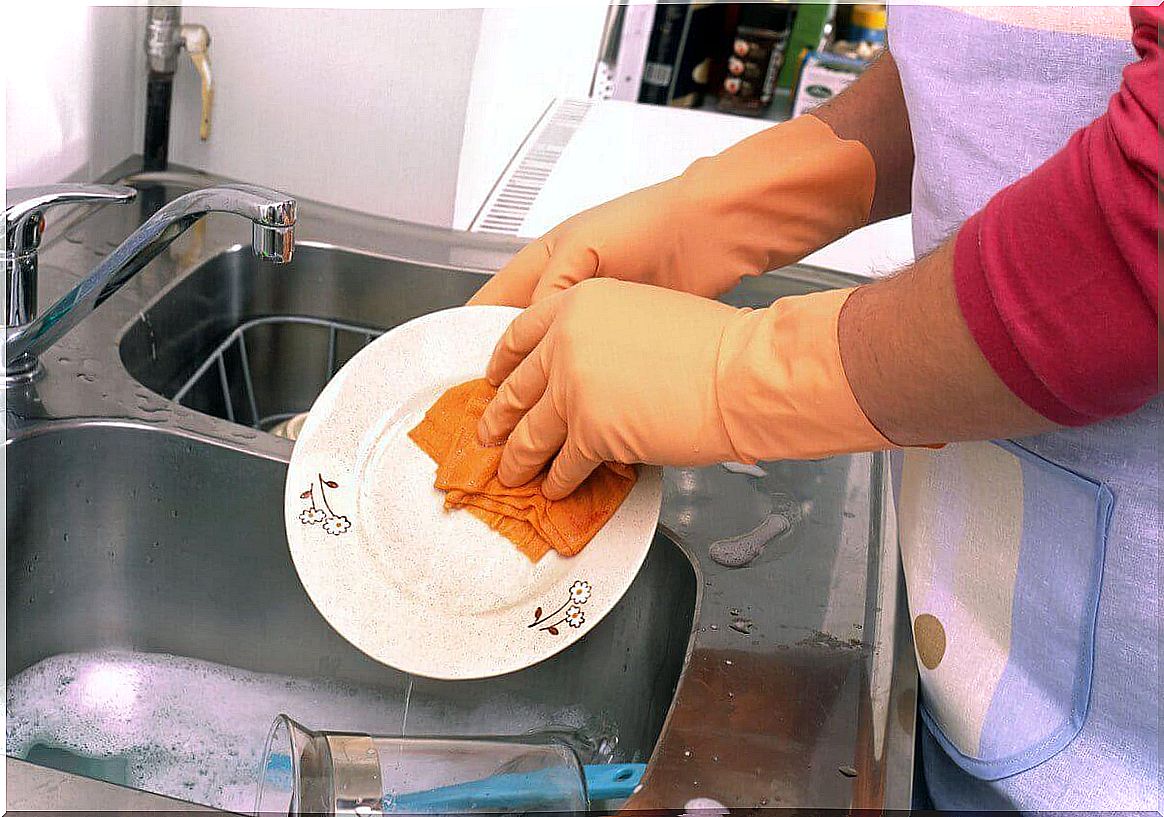
It is recommended to soak the cutlery in hot water first, so that grease is easier to remove and the dishes dry faster.
- When you have two sinks, you can fill both with hot water and let the plates and cutlery soak.
- You can also soak them in a dish washing machine and then wash and rinse.
It is important to turn off the tap when washing each plate individually. You can use a small washing-up bowl filled with water to wash dishes. This way you don’t waste clean water.
3. Using a plastic sponge
The biggest causes of contamination in the kitchen can be found in sponges and dishwashers. These are perfect places for bacteria such as E. coli and Salmonella.
It is therefore a good idea to use a sponge made of natural fibers.
- After washing, hang the sponge to dry completely.
- It is also recommended to replace the sponge every week.
4. Incorrect washing of knives and glasses
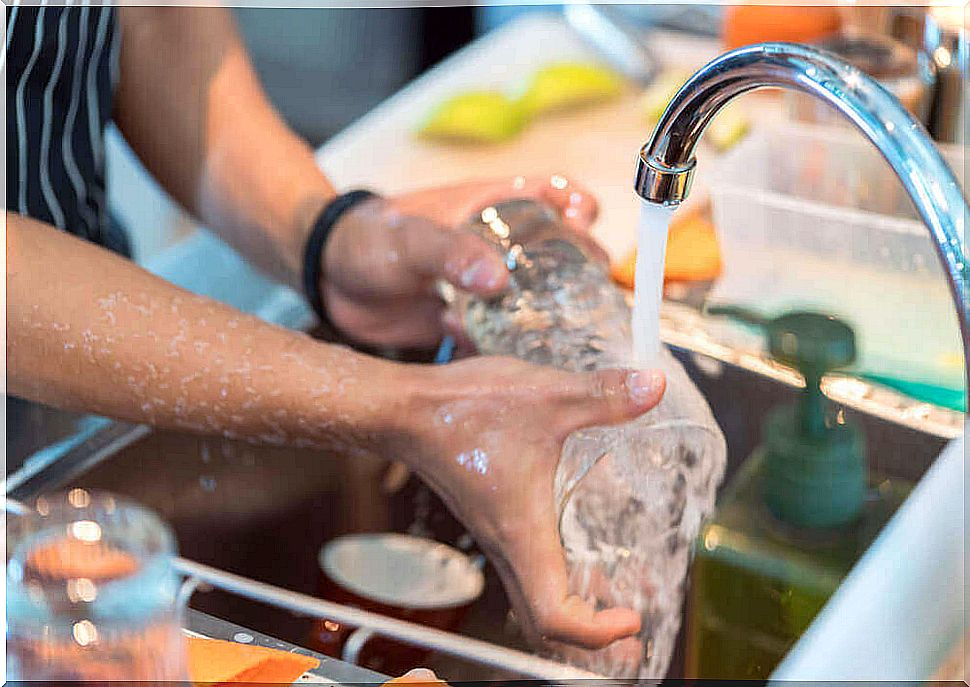
One of the common mistakes when washing dishes is to clean the blades only quickly, leaving small amounts of food residue behind. It is better to take your time to make sure that all food remains are gone.
- It is not always easy with glasses. For example, milk bacteria can remain, even after washing the dishes.
- So always check the glasses carefully and rinse them well, so that bacteria do not have the chance to develop easily.
5. Don’t wash your hands first
Our hands can be a source of contamination from bacteria and viruses. It is therefore important to wash your hands with soap and warm water before washing dishes.
6. Beware of cutting boards
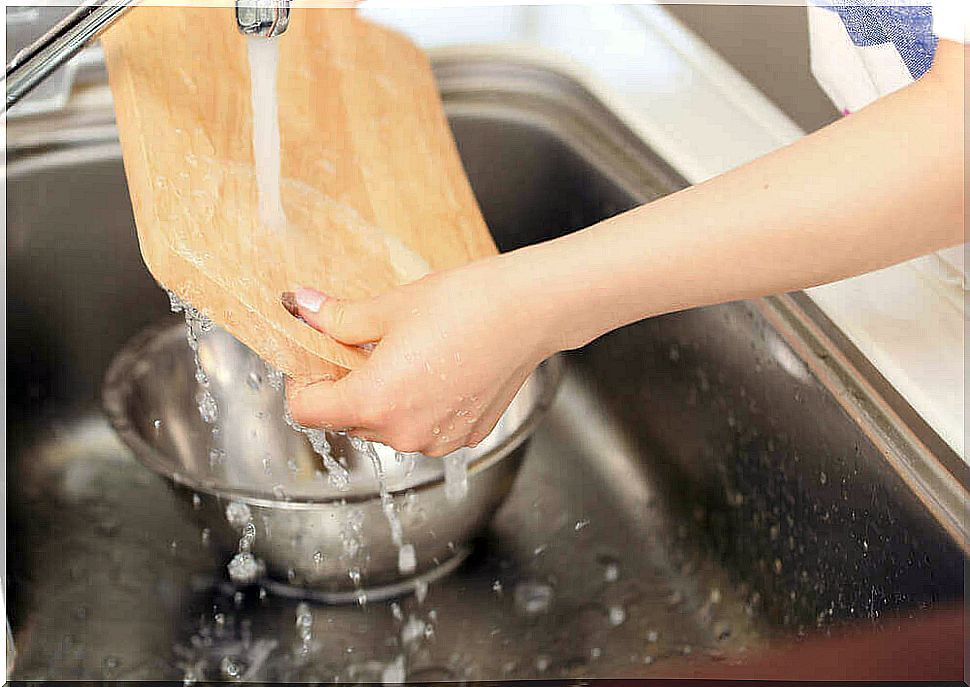
- When you use cutting boards for vegetables and meat, it is best to rinse them first.
- You can then disinfect the cutting board with a cleaning agent or chlorine solution for 2 minutes.
- It is not wise to clean them with a sponge and dishwashing liquid. In this way, the cutting board will not be cleaned properly.
7. Wash in a dirty sink
A sink can contain more bacteria than a toilet. It is recommended to clean the sink daily with vinegar and baking soda or with vinegar and salt.
This way everything is disinfected when you wash dishes and you don’t give new bacteria a chance to develop.
8. Do not remove or rinse food residues
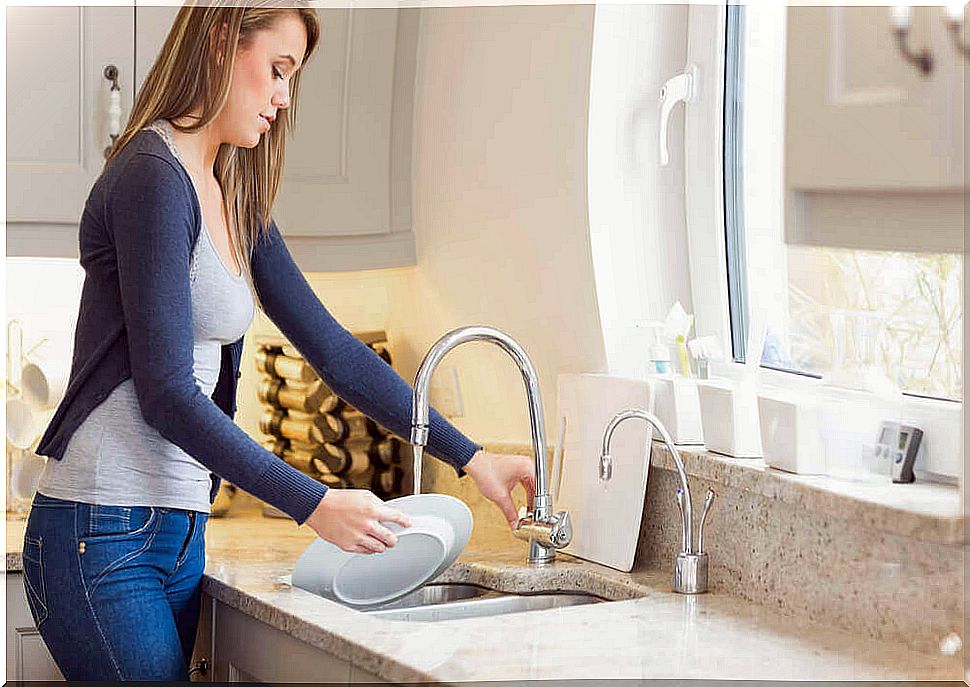
- Remove all leftover food and throw it in the waste bin. You can use a spatula to remove the food remains.
- Then place the dishes and cutlery in hot water, so that all residues come off. Then you wash the dishes completely.
One of the other common dishwashing mistakes is not removing food scraps, which ends up in the sink and on the counter. As a result, your dishes will not get clean or they will get dirty again when you put them on the counter.
Tips for the best washing results
- Use hot water when washing dishes and wear gloves.
- Wash cutlery and knives that have come into contact with raw meat last. This way you avoid cross-contamination.
- Use a clean, dry cloth to dry the dishes and make sure the cloth is clean.
- Disinfect cut slices with lemon and (baking) salt.
It is important to consider these tips to avoid diseases caused by spreading bacteria. With this we not only take care of our health, but also our crockery will look like new.
